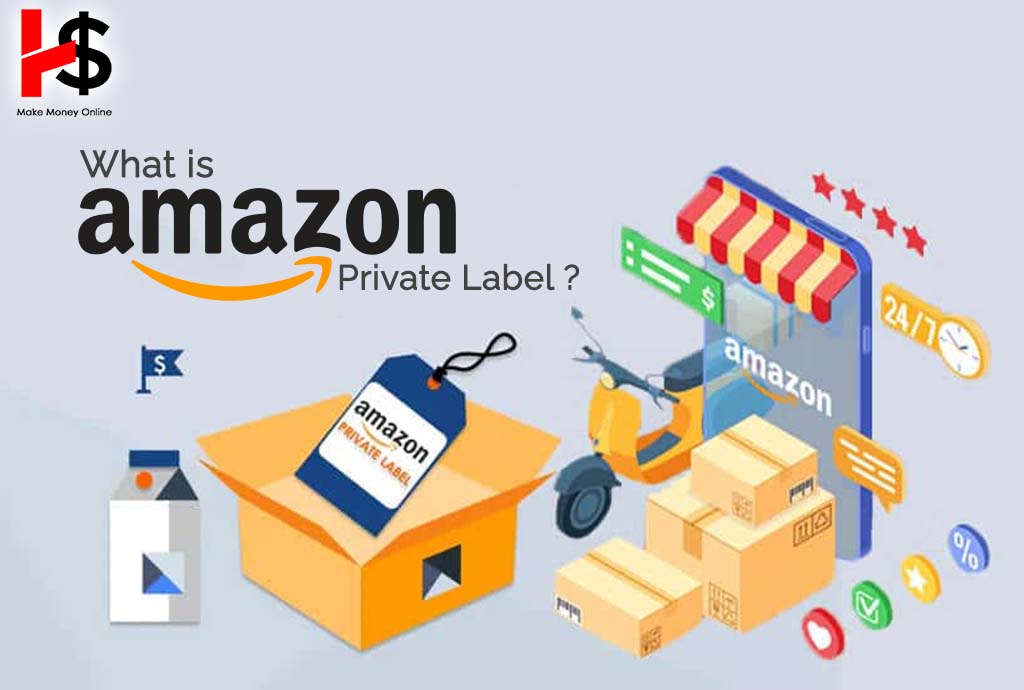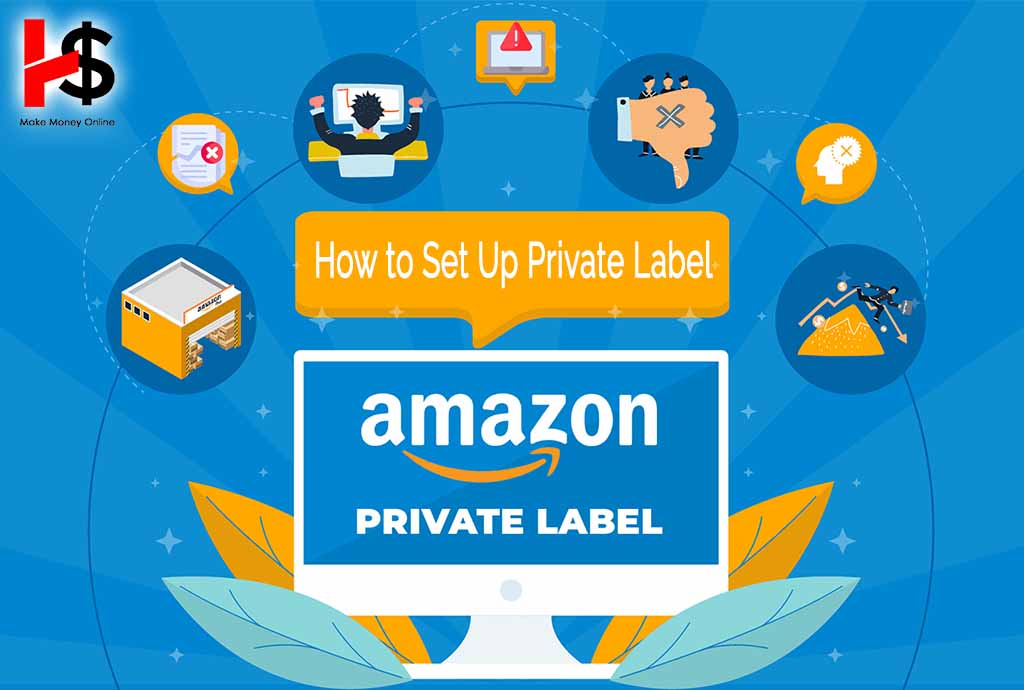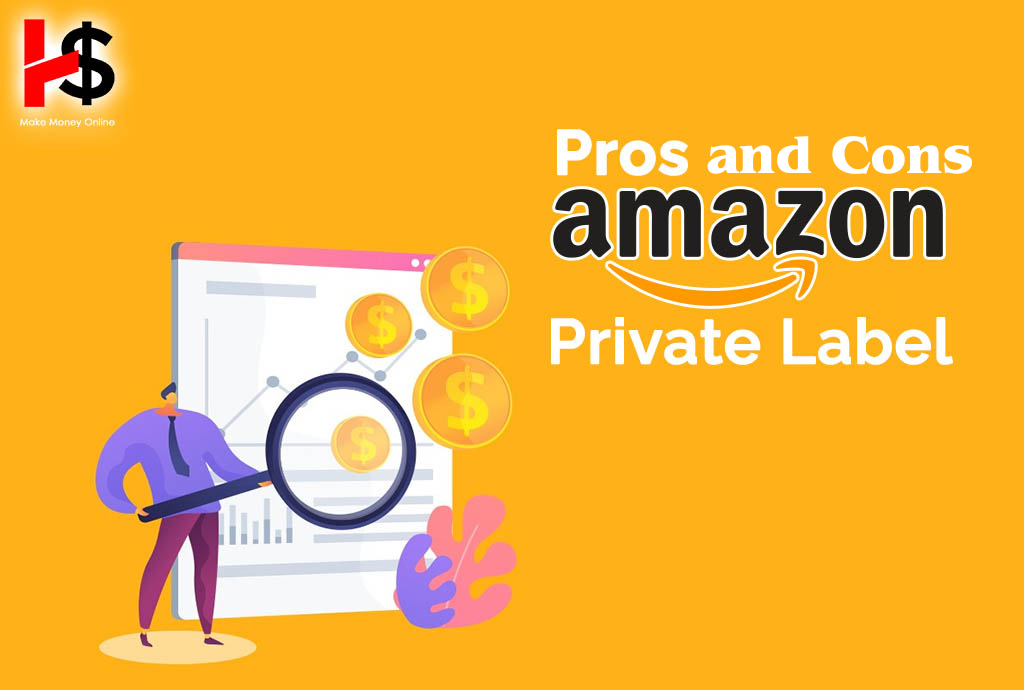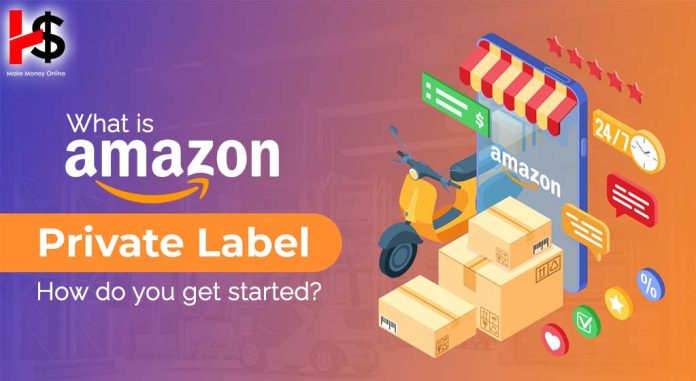The concept of Amazon Private Label has been rapidly gaining popularity in recent times. The idea is quite simple where you sell and package your inventory. But the products you’re selling are manufactured by the third-party. Private labeling isn’t a new phenomenon. Sellers have been creating private label products since the mid-19th century. The interesting thing about private labeling is that it allows you offer excellent products for sale without facing any challenges regarding production and any other issues.
This article will explain what is Amazon Private Label, go over its benefits and drawbacks, and show you how to get started with Private Label.
Table of Contents
What is Amazon Private Label?

Amazon Private Label is selling the products of your choice under your private label on Amazon. Once you’ve selected a product, you reach out to the manufacturers who produce it in larger quantity under your brand name and handle shipping. Subsequently, you affix your brand to the product. Once its done, you can sell it on Amazon.
How to Get Started with Private Label?

The following steps break down how to get started with Private Label:
Research to identify the right product
Identify a product that you believe could bring you significant benefits through private labeling. Look into and list different product categories that attract your interest. Make a longer list at first, which you can then narrow down to make sure everything is included. Make sure to consider the existing or potential demand, which includes fluctuations in sales and seasonality. In addition, evaluate your capacity to create steady demand and investigate social media analytics to find prospective consumer patterns.
Partner with an experienced supplier or manufacturer
Selecting the right manufacturers is a critical element in the success of your private label products. While cost is a significant factor in selecting the right manufacturer. It should not be the sole consideration. When evaluating your options, it’s important to consider labor and material costs and if sourcing from overseas, consider currency fluctuations as well.
Build the brand logo, product packaging
Establishing a robust and unified brand identity in the digital marketplace can be achieved by making significant investments in product quality, design, packaging, and branding. You can set your brand apart from others by offering a persuasive value proposition. These core principles can effectively enhance brand recognition, foster customer engagement and social proof.
Request product samples for quality control
Once product is ready, it’s essential to request samples from your supplier to verify that the qualities and other attributes align with your expectations before you launch it to the market. Share the prototype and packaging with different groups of individuals, including potential customers, to collect any feedback that should be considered before placing your initial bulk order.
Decide on your Amazon Fulfilment strategy
Before making decision to fulfill your Amazon orders through a merchant-fulfilled operation or either by utilizing fulfilment by Amazon, it’s necessary to understand which products have a track record of success with each method.
Fulfilled by Merchant
Under the Amazon fulfilled by merchant fulfillment strategy, an Amazon seller ships their goods to customers after they make a purchase on the platform. FBM can be managed by the seller either directly or in collaboration with a third-party logistics service provider.
Fulfillment by Amazon
With fulfillment by Amazon, you can store your products in Amazon’s fulfilment centers, where Amazon managed the tasks of picking, packing, shipping and providing customer service for those products. FBA can help you in expanding your business and reach more customers.
Create Amazon listing
Manufacturers typically need approximately 3-4 weeks to produce a product and an additional 1-2 weeks to transport it to the retailer or the nearest Amazon fulfillment center. When creating an Amazon listing, there are several key points to keep in mind:
- Firstly, make sure that you have everything ready to publish in advance.
- Secondly, great photos of products are necessary because it’s the most important element of the Amazon private label listing.
- Lastly, add the features and benefits of your product in the description. This will help customers to make a purchase decision when they click through your page.
Optimize listing to boost sales
Optimize your listing to increase traffic and conversion rates. By optimizing these listings, you can maintain consistency in branding, reviews, messaging and ratings.
Pros and Cons of Amazon Private Label

Here are the Pros and Cons of Amazon Private Label:
| Pros | Cons |
| Higher profit margins: Private label sellers can typically charge higher prices for their products than wholesale sellers, as they have more control over the product development, manufacturing, and branding process. | Higher upfront investment: Private label sellers need to invest in product development, manufacturing, branding, and marketing, which can be a significant upfront cost. |
| More control over your brand: Private label sellers have the opportunity to create a unique brand identity and build a loyal customer base. | More competition: The private label market on Amazon is becoming increasingly competitive, as more and more sellers are launching their own brands. |
| Ability to differentiate your products: Private label sellers can customize their products to meet the specific needs of their target market, which can help them to stand out from the competition. | More time-consuming: Building a profitable Amazon private label business takes time. Sellers must identify a trustworthy manufacturer, do in-depth market research, and create a distinctive brand identity. |
Conclusion
Private labels are not a quick way to make money online, they require a long-term commitment. If you done it correctly, they offer the potential for you to become your own boss and create a successful ecommerce empire. Private label products need research, effort, time and screening. But by maintaining control throughout the process, you can steadily increase your revenue on Amazon.

